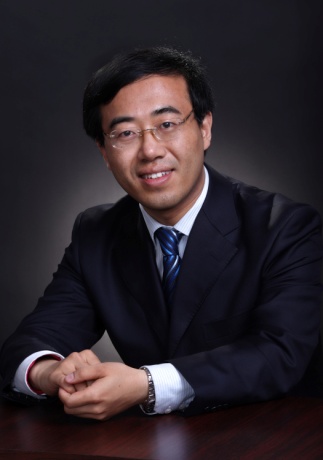1. 承辦院系School/Department host:
人工智能國(guó)際治理研究院(I-AIIG)
2. 挑戰(zhàn)主題Theme:
人工智能怎樣助力構(gòu)建智能和可持續(xù)的未來?
How AI can help us build an intelligent and sustainable future?
3. 導(dǎo)語/背景情況概述 Background:
在此次抗擊新冠肺炎疫情中,人工智能技術(shù)在病毒檢測(cè)和診斷、疫情追蹤、面部識(shí)別以及日常監(jiān)測(cè)上發(fā)揮了關(guān)鍵支撐作用。然而,伴隨人工智能技術(shù)的廣泛應(yīng)用,所帶來的潛在風(fēng)險(xiǎn),如數(shù)字鴻溝加劇、數(shù)據(jù)隱私問題以及自動(dòng)化武器開發(fā)等也需要關(guān)注。因此,我們需要引導(dǎo)技術(shù)實(shí)現(xiàn)可持續(xù)發(fā)展目標(biāo),使人工智能實(shí)現(xiàn)普惠。本次馬拉松將吸引全球致力于應(yīng)用人工智能技術(shù)促進(jìn)可持續(xù)發(fā)展的學(xué)生。
The COVID-19 pandemic has accelerated the proliferation of Artificial Intelligence (AI) technologies in public health, such as contact tracing, facial recognition, virus detection and vaccine development. As we start to reap the benefits of AI technologies to combat the pandemic, we also need to recognize the potential risks posed by such technologies, such as the widening digital divide, data privacy concerns, and the development of autonomous weapons. Therefore, more efforts and investments are needed to steer technology towards achieving the Sustainable Development Goals and make more AI beneficial for all. This Hack aims to bring teams of passionate young people from across the world together to embark on a learning journey to explore how we can harness AI technologies to tackle real-world problems.
4. 該領(lǐng)域比較關(guān)注的問題 Our key topics of interest:
1) AI and Climate Change(AI與氣候變化)
2) AI and Biodiversity (AI促進(jìn)生物多樣性的發(fā)展)
3) AI and COVID-19 (AI助力抗疫)
4) AI and Education (AI與教育)
6) AI and Digital Inclusion (AI與數(shù)字包容)
5. 主講老師 Hack Leaders
梁 正

南開大學(xué)經(jīng)濟(jì)學(xué)博士,麻省理工學(xué)院富布萊特研究訪問學(xué)者(2012),現(xiàn)任清華大學(xué)公共管理學(xué)院教授,清華大學(xué)人工智能國(guó)際治理研究院副院長(zhǎng),清華大學(xué)中國(guó)科技政策研究中心副主任,清華大學(xué)科技發(fā)展與治理研究中心學(xué)術(shù)委員會(huì)秘書長(zhǎng),兼任中國(guó)科學(xué)學(xué)與科技政策研究會(huì)理事、副秘書長(zhǎng),公共管理專業(yè)委員會(huì)副主任,中國(guó)知識(shí)產(chǎn)權(quán)研究會(huì)高校知識(shí)產(chǎn)權(quán)專業(yè)委員會(huì)副主任,中國(guó)城市經(jīng)濟(jì)學(xué)會(huì)城市公共經(jīng)濟(jì)與政策專業(yè)委員會(huì)副主任,中國(guó)國(guó)際科學(xué)技術(shù)合作協(xié)會(huì)理事,中國(guó)技術(shù)經(jīng)濟(jì)學(xué)會(huì)知識(shí)產(chǎn)權(quán)專委會(huì)理事,中國(guó)科技體制改革研究會(huì)理事,《科學(xué)與管理》、《中國(guó)標(biāo)準(zhǔn)化》雜志編委。主要研究方向?yàn)榭萍紕?chuàng)新政策、研發(fā)全球化、標(biāo)準(zhǔn)與知識(shí)產(chǎn)權(quán)、新興技術(shù)治理。在National Science Review, Journal of Informetrics, World Economy等國(guó)內(nèi)外學(xué)術(shù)期刊上發(fā)表論文超過70篇,出版各類著作30余部,先后獲第八屆高等學(xué)校科學(xué)研究?jī)?yōu)秀成果一等獎(jiǎng),中國(guó)科學(xué)學(xué)與科技政策研究會(huì)優(yōu)秀青年獎(jiǎng)等多項(xiàng)獎(jiǎng)勵(lì)。參與完成國(guó)家中長(zhǎng)期科技發(fā)展規(guī)劃戰(zhàn)略研究,中科院知識(shí)創(chuàng)新工程試點(diǎn)評(píng)估、科技部—OECD合作中國(guó)國(guó)家創(chuàng)新體系研究,國(guó)家自然科學(xué)基金“十二五”、“十三五”發(fā)展規(guī)劃戰(zhàn)略研究多項(xiàng)國(guó)家級(jí)重大咨詢和國(guó)際科技合作重點(diǎn)課題。
Dr. LIANG Zheng now serves as the Professor of the School of Public Policy and Management, Tsinghua University, as well as the research fellow and vice president of the Institute for AI International Governance, Tsinghua University (AIGI), and the research fellow and deputy director of China Institute for Science & Technology Policy at Tsinghua University (CISTP). Dr. Liang obtained his doctor’s degree of economics at Nankai University (2003) and completed a senior executive training program on leadership at Kennedy School of Government, Harvard University (2010). In 2012, he visited the MIT Industrial Performance Center (MIT IPC) as a Fulbright Visiting Research Scholar for one year. The main areas of his research now focus on Science, Technology and Innovation Policy, Globalization of R&D, IPRs and Standardization, Emerging Technology and Innovation Governance. Besides academic publishing on peer review journals such as National Science Review, Journal of Informetrics, and World Economy, Dr. Liang also participated in some important research projects such as the Strategic Research for National Medium and Long Term Science and Technology Development Program (MLP) of China. He was previously a member of the National Innovation Survey Expert Group (2014-2017), as well as a member of the Sino-US Innovation Dialogue Expert Group (2015-2018).
6. 導(dǎo)師 Mentors
于洋

清華大學(xué)交叉信息研究院助理教授、清華大學(xué)人工智能治理研究院人工智能國(guó)際學(xué)術(shù)交流項(xiàng)目主任。2016 年 6 月畢業(yè)于斯坦福大學(xué),獲得博士學(xué)位。他的研究興趣聚焦于算法和平臺(tái)產(chǎn)業(yè)監(jiān)管、人工智能治理等。
YU Yang is an assistant professor at the Institute for Interdisciplinary Information Sciences of Tsinghua University, and director of international academic exchange program at the Institute for AI International Governance of Tsinghua University. He graduated from Stanford University in June 2016 with a doctorate. His research interests include algorithms and platform industry regulation, artificial intelligence governance.
曾毅

清華大學(xué)人工智能國(guó)際治理研究院人工智能倫理與治理方向首席專家;中國(guó)科學(xué)院自動(dòng)化研究所研究員、類腦智能研究中心副主任、中英人工智能倫理與治理研究中心聯(lián)合主任;中國(guó)科學(xué)院大學(xué)崗位教授、博士生導(dǎo)師;北京智源人工智能研究院人工智能倫理與可持續(xù)發(fā)展中心主任;清華大學(xué)戰(zhàn)略與安全研究中心客座研究員;國(guó)家新一代人工智能治理專委會(huì)委員;聯(lián)合國(guó)教科文組織人工智能倫理特別專家組專家;世界衛(wèi)生組織健康領(lǐng)域人工智能倫理與治理專家組專家。主要研究方向?yàn)椋侯惸X人工智能、人工智能倫理與治理、人工智能哲學(xué)。
ZENG Yi is the Chief Scientist in AI Ethics and Governance, Institute of AI International Governance, Tsinghua University. He is a Professor at Institute of Automation, Chinese Academy of Sciences, serving as Co-director of China-UK Research Centre for AI Ethics and Governance, and Deputy Director of Research Center of Brain-inspired Intelligence. He is the founding director of Research Center for AI Ethics and Sustainable Development at Beijing Academy of Artificial Intelligence. He is a Professor at the University of Chinese Academy of Sciences and an Adjunct Research Fellow at the Center for International Security and Strategy, Tsinghua University. Zeng Yi serves as a board member for the National Governance Committee for the New Generation Artificial Intelligence, is an expert in the UNESCO Ad-hoc Expert Group in AI Ethics, and an expert in the Expert Group of AI Ethics and Governance in Health, World Health Organization.
7. 承辦院系簡(jiǎn)介 Introduction of School/Department host
清華大學(xué)人工智能國(guó)際治理研究院(Institute for AI International Governance, Tsinghua University,THUAIGI)是2020年4月由清華大學(xué)批準(zhǔn)成立的校級(jí)科研機(jī)構(gòu)。依托清華大學(xué)在人工智能與國(guó)際治理方面的已有積累和跨學(xué)科優(yōu)勢(shì),研究院面向人工智能國(guó)際治理重大理論問題及政策需求開展研究,致力于提升清華在該領(lǐng)域的全球?qū)W術(shù)影響力和政策引領(lǐng)作用,為中國(guó)積極參與人工智能國(guó)際治理提供智力支撐。
研究院通過舉辦人工智能國(guó)際高端論壇、學(xué)術(shù)會(huì)議與系列講座,發(fā)布人工智能國(guó)際治理研究報(bào)告、開展自由研究和接受委托課題等形式,研判人工智能技術(shù)發(fā)展與應(yīng)用對(duì)國(guó)家、社會(huì)與人類的影響,并探尋如何建立公正合理的人工智能國(guó)際治理體系與秩序。重點(diǎn)圍繞人工智能國(guó)際治理理論與前沿實(shí)踐,人工智能全球治理合作動(dòng)因、人工智能國(guó)際治理體系未來方向開展研究,并就人工智能領(lǐng)域世界秩序、戰(zhàn)略格局、安全形勢(shì)、國(guó)際關(guān)系等重點(diǎn)問題進(jìn)行前瞻分析。基于文明平等、文明對(duì)話、文明互鑒的理念,研究院積極開展不同形式的國(guó)際交流與合作,宣介、闡釋和傳播國(guó)家相關(guān)發(fā)展理念與內(nèi)外政策的基本主張,發(fā)揮中國(guó)高校智庫(kù)在國(guó)際交往中的話語權(quán)建設(shè)作用。
The Institute for AI International Governance of Tsinghua University (I-AIIG)) is a university-level research institute established by Tsinghua University in April 2020. Leveraging Tsinghua's existing resources and interdisciplinary advantages in AI and international governance, I-AIIG conducts research on major theoretical issues and policy needs of AI international governance. It aims to enhance Tsinghua University's global academic influence and policy leadership in this field and provides intellectual support for China's active participation in AI international governance.
Through organizing international high-end forums, academic conferences and lecture series on AI, publishing research reports on international governance of AI, and conducting independent research and accepting commissioned projects, the Institute examines the impact of the development and application of AI technology on state, society and humanity as a whole, and explores how to establish a just and reasonable international governance system and order of AI.
The Institute focuses on the theory and frontier practice of international governance of AI, the motivations of AI global governance cooperation and the future direction of AI international governance systems, and conducts forward-looking analysis on key issues such as world order, strategic patterns, security and international relations in the field of AI. Based on the concept of equality, dialogue and mutual learning among human society, the Institute, as a Chinese university think tank, actively carries out different forms of international exchanges and cooperation to introduce, explain and communicate the basic propositions of China’s related national development concepts and domestic and foreign policies.